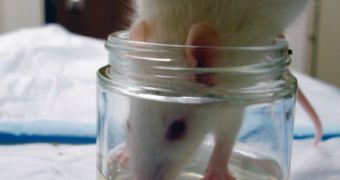Experts at the University of Washington in Seattle (UWS) have recently released a new scientific report, showing that rats who consume alcohol when young tend to engage in more risky behavior than their peers, which were not allowed to drink. Scientists have been wondering for a long time if risk-taking is directly correlated with teen alcohol consumption, or if risk-prone people are simply more likely to start drinking at an earlier age. Some researchers believe that the new conclusions may apply to humans as well, ScienceNow reports.
The new study, its leaders say, does not settle the scientific debate on the matter, but augments that side that claims that alcohol consumption is a trigger for riskier behavior in adulthood. UWS neuroscientist Ilene Bernstein, the senior author of the new investigation, says that thoroughly documented data show that adolescents who drink more often, and heavier than their peers, are very likely to fall prey to alcohol and drug abuse later on in life. However, she admits, previous studies have yet to determine the cause-effect correlation, meaning that the experts only noticed a state of affairs.
In experiments the UWS team conducted, rats from the same genetic lineage were divided into two groups, one of which was given access to alcohol when young, while the other was not. The problem was that rats were not voluntary alcohol drinkers, so the experts had to use spiked gelatin, the equivalent of Jell-O. The rats thus consumed a lot of “drinks” per day, but stretched out over a period of time, and never to the point where they appeared to be completely drunk. The scientists then made the rats play a risk-taking game, which was used by psychologists to assess risk-taking in humans.
Two levers were placed in a cage. When rats pressed the first, it yielded sure but small sugar pellets. The second one gave more sugar, but much less frequently. The game was rigged in such a way that, in one session, it was more profitable to only get the constant supply of sugar pellets, while, in the other one, the overall reward from the other source was bigger. In a scientific paper appearing in the latest issue of the journal Proceedings of the National Academy of Sciences (PNAS), the UWS team reports that, three weeks after their last drink, rats in the alcohol group still preferred the risky lever, even if they learned that sometimes it yielded poor rewards.
“Alcohol for some reason is very toxic to developing nervous systems,” Bernstein concludes. University of California in San Diego (UCSD) psychiatrist Martin Paulus believes that the new research has considerable implications for humans as well. He adds that, in addition to this risk, teens are also subjected to environmental and genetic influences, which means that they could be even more likely to engage in risky behavior as adults than the rats were.

 14 DAY TRIAL //
14 DAY TRIAL //